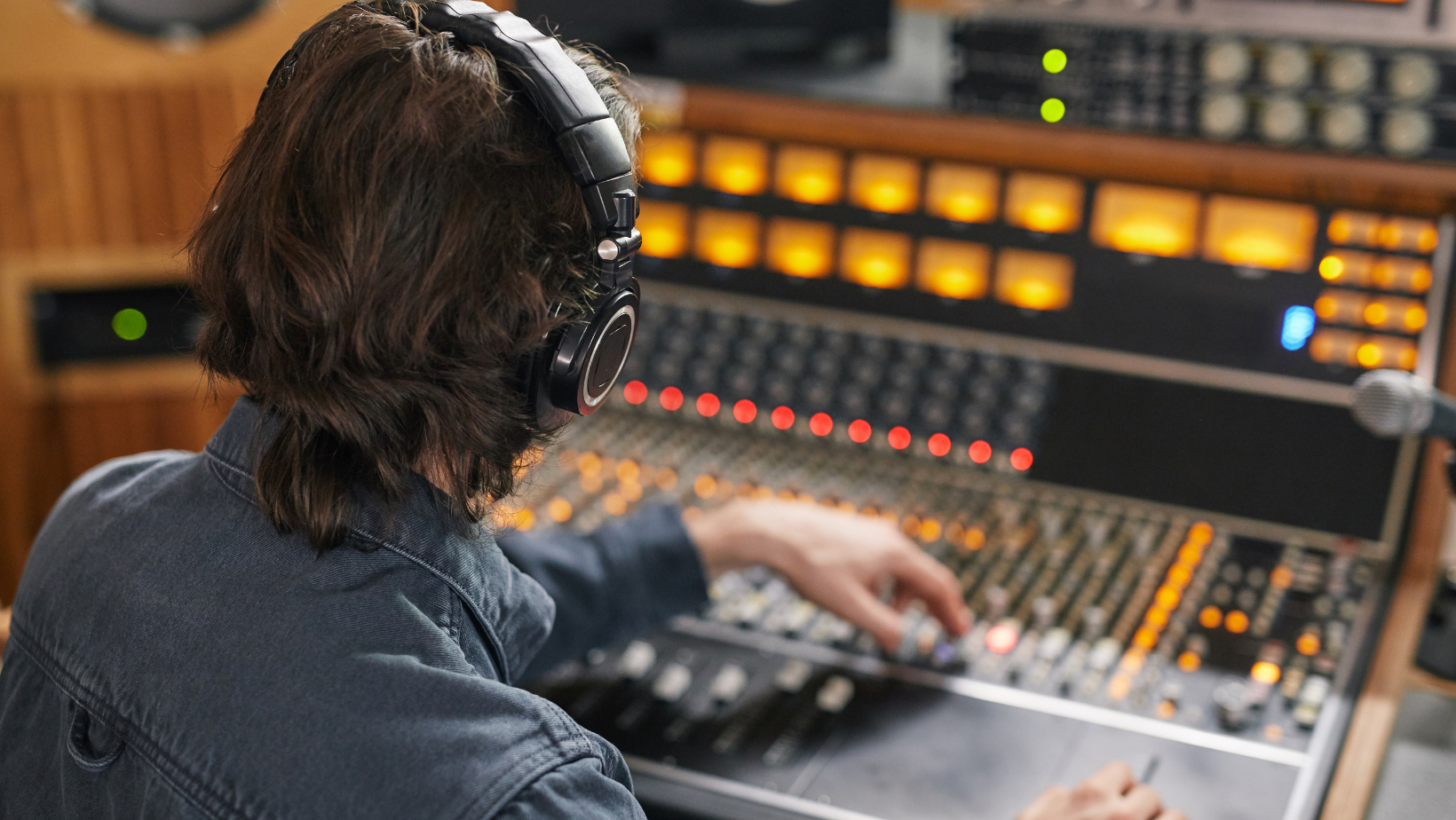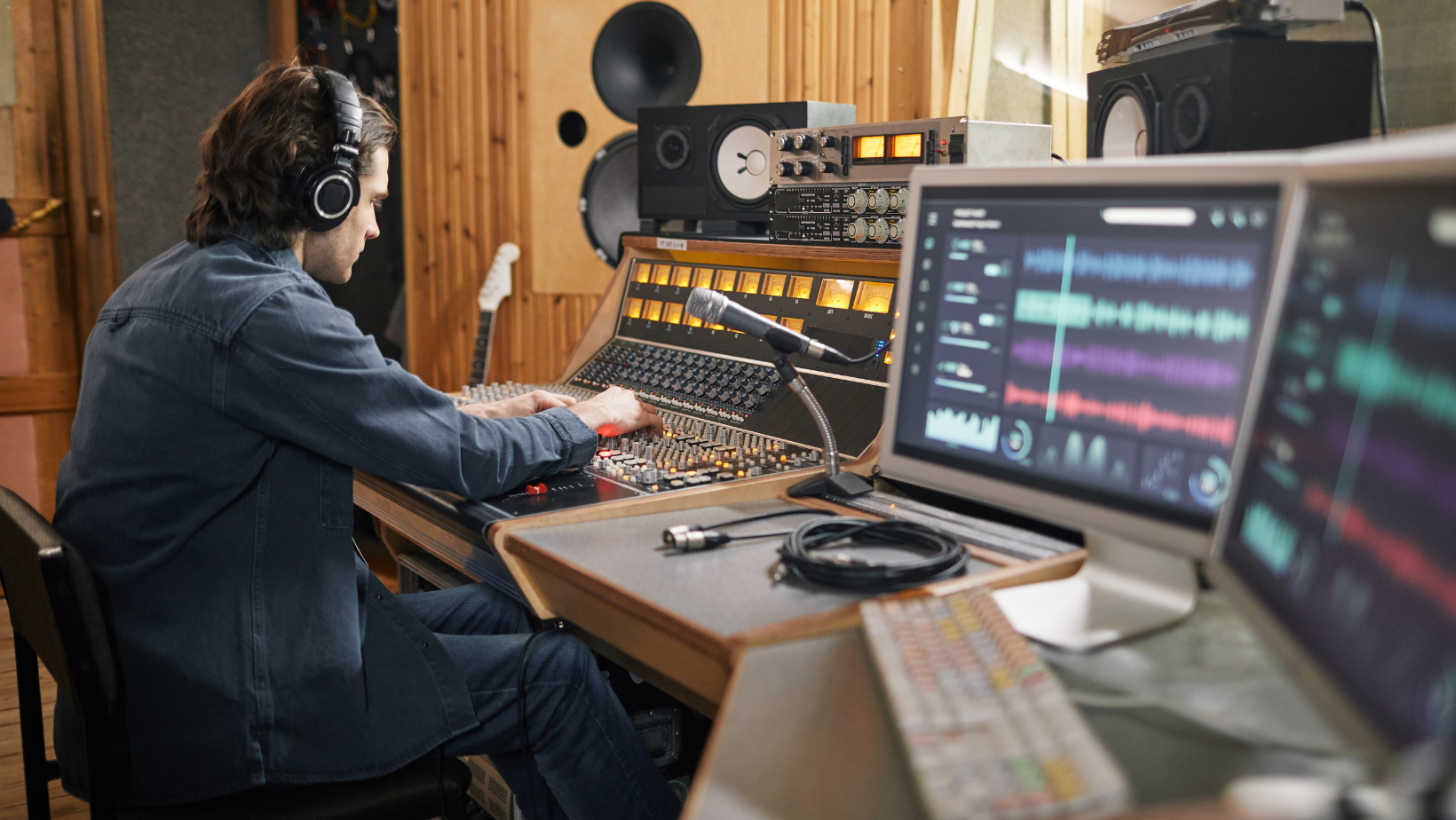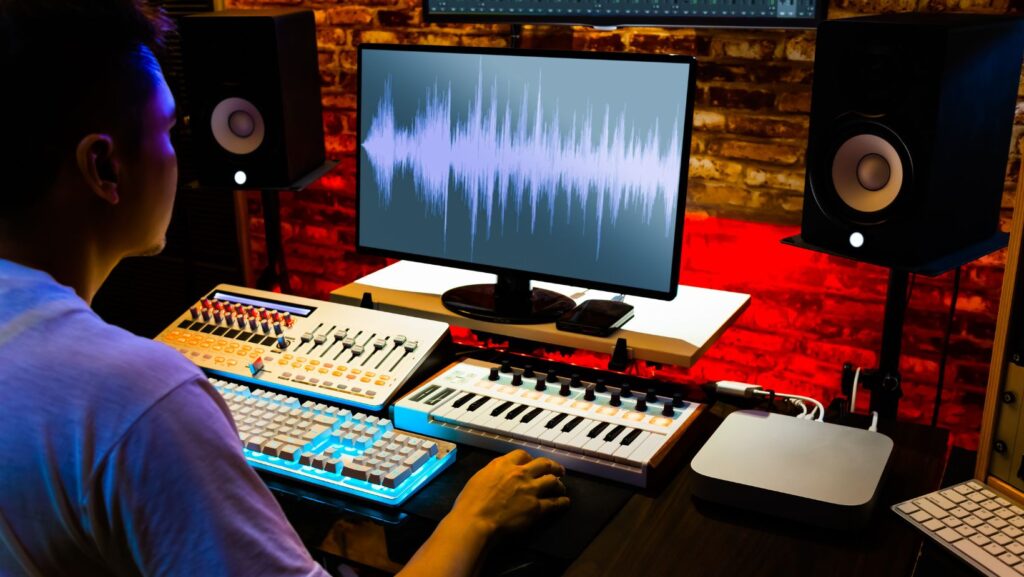Delve into the intriguing world of music production jobs, where you can uncover various roles, understand their vital contributions, and appreciate how they shape the music we love. Just as Entertainment & Lifestyle Trends reflect and influence our culture, these roles within the music industry play a crucial part in crafting the sounds that enrich our lives. This exploration offers a unique backstage pass to the inner workings of the music industry, revealing the artistry behind the scenes.
Music Production Jobs
The Importance of Music Producers in the Music Industry
Music producers hold significant sway in crafting music that listeners love. For instance, they shape the sound of a track, determining its style and coherence. Offering an artistic and technical balance, their job often involves making key decisions in composing, arranging, and recording songs. Music producers also liaise with artists, sculpting their raw ideas into polished tracks.
Types of Music Production Jobs
This section elucidates some of the main jobs involved in music production.
Studio Music Producer
A studio music producer takes the reins in coordinating music recordings. This professional directs the recording process, supervises the mix, and makes decisions on sound sheen, instrumentation, and composition. They rely on strong technical skills mixed with a deep understanding of music and its trends. Recordings filled with valuable contributions from studio music producers act as strong testaments to their essential role in music production.
Live Sound Engineer

Live sound engineers specialize in the field of amplifying and controlling music performances in real-time. They focus vanishes between onstage happenings and audience experience, handling the sound systems and volume control. Live sound engineers might work at music festivals, concerts, or theater performances, making sure the audience hears the performance at its best.
Taking charge of the final stages in music production, audio post-producers focus on mixing, mastering and editing recorded music. They balance levels, refine sound quality, and add sound effects to ready the final piece for release. Unison.audio will help you in all this. In studios, films, and TV shows, audio post-producers also work with Foley artists and add sound effects post-production. A consummate professional in this role demands an exceptional ear for detail and deep proficiency in technological tools.
How to Get Started in Music Production
The Role of a Music Degree

A degree in music production provides a sturdy foundation for prospective producers. It equips students with knowledge in subjects like sound design, acoustics, and music theory: for instance, understanding octaves, chords, and scales, crucial elements of every music producer’s arsenal. Attending music production schools, such as Clive Davis Institute and Berklee College, offers access to industry-standard equipment, giving students hands-on experience from early on. Despite this, possessing a degree isn’t the only pathway into music production; experience plays a vital role, too.
Gaining Experience and Building a Portfolio
Starting a career in music production involves gaining practical experience. Potential producers often begin in entry-level roles, such as interns or assistants in recording studios. Through these positions, cultivating skills like adjusting microphone levels and setting up recording equipment, forming a strong foundation. Building a portfolio is another key aspect of getting started; it provides work samples for potential employers or clients. Key examples include self-produced tracks or projects you’ve assisted on, showcasing your unique skills and experiences.
Networking in the Music Industry
Networking is integral to establish a foothold in the music production industry. It entails meeting professionals at music events, joining industry organizations like the Audio Engineering Society or networking online via social platforms. These interactions can lead to job opportunities or provide insights into music production, as publicized by successful music producers worldwide. Ultimately, forging these connections early on aids in understanding the industry firsthand, navigating its complexities, and laying the fundamentals for a successful career in music production.
Must Know About Music Production Jobs
Navigating the world of music production jobs can be a thrilling journey. The roles of sound engineers, music directors, and music producers are pivotal in crafting successful music. They’re the magic behind the scenes, refining artists’ raw ideas into polished tracks. So, whether you’re just starting or looking to advance in your career, remember that success in music production comes from a blend of talent, technical knowledge, and the right connections.



